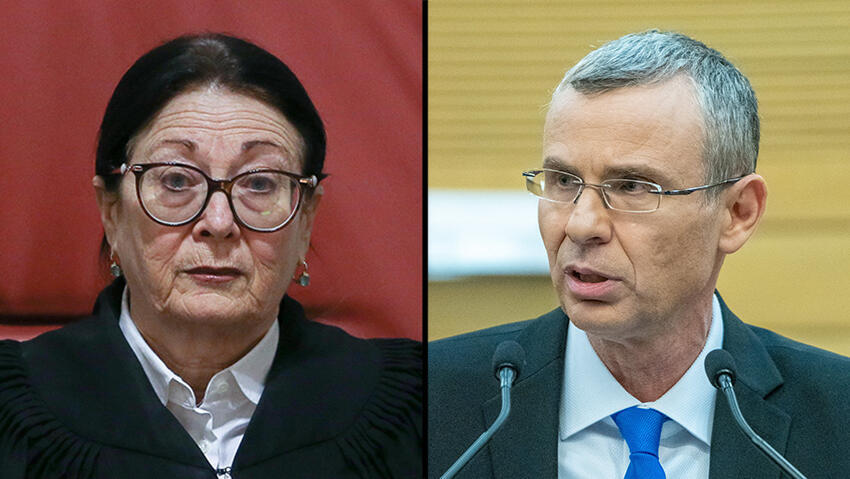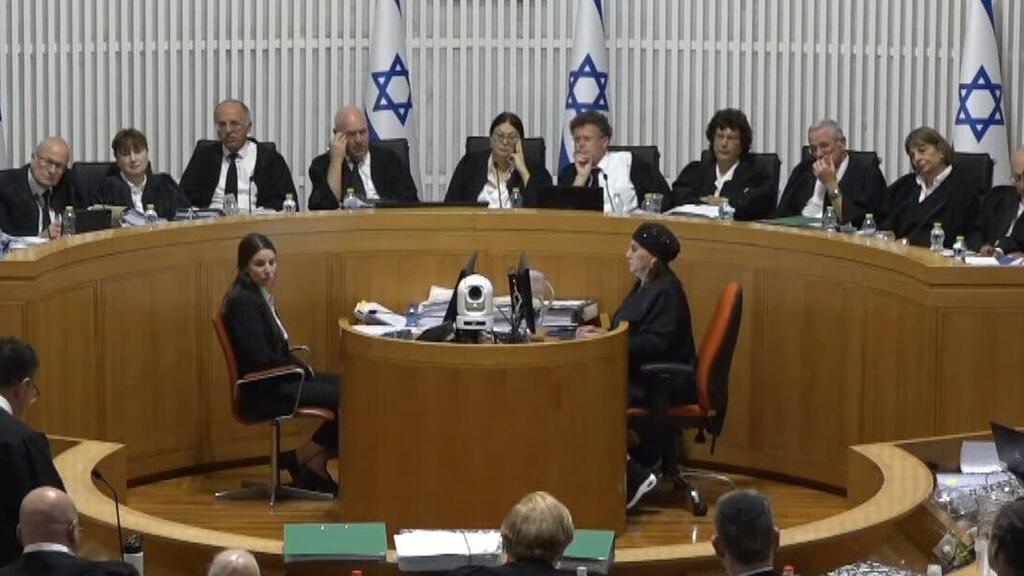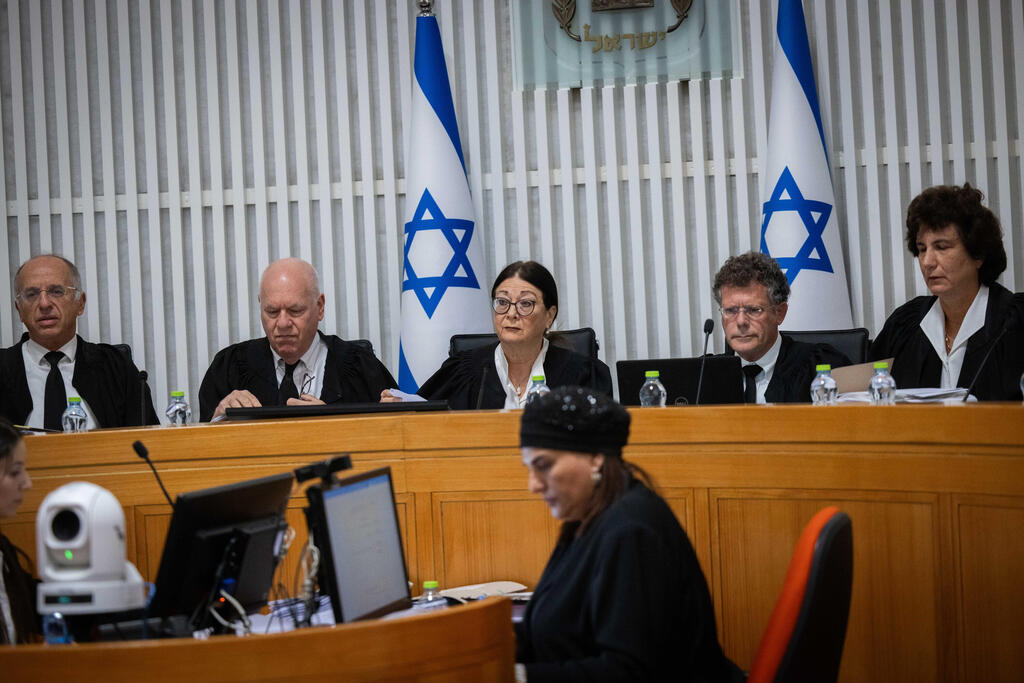Getting your Trinity Audio player ready...
The landmark hearing on Tuesday of challenges to key components of the government's push to overhaul the judiciary entered its 13 hour, with the judges becoming noticeable tired and irritable as representatives to the petitioners and the government continued to speak.
CONSTITUTIONAL CRISIS LOOMS AS HIGH COURT CONSIDERS REASONABLENESS LAW - RAN BAR YOSHAFAT
More stories:
As the hearing continued, the Likud Party late on Tuesday afternoon issued a statement about the efforts to overturn the amendment to the Basic Law: Judiciary that revokes the courts use of a reasonableness standard in overturning Knesset legislation.
“The most important element in democracy is that the people are sovereign. The Knesset receives its authority from the people. The government receives its authority from the Knesset. The court receives its authority from the Basic Laws enacted by the Knesset,” the party said in the statement.
“If the court can cancel Basic Laws, it makes itself sovereign instead of the people. This extreme step will undermine the foundation of democracy. This is a red line that must not be crossed,” it also said.
Supreme Court Chief Justice Esther Hayut spoke at the beginning of the landmark hearing.
“Here, we are moving toward a trend of canceling [it],” she says, citing England and Australia as examples of countries that have increasingly used the doctrine.
Knesset lawyer Yitzhak Bart replied, “We had a big change 40 years ago and since then the pendulum has been swinging.”
4 View gallery


Supreme Court Chief Justice Esther Hayut and Justice Minister Yariv Levin
(Photo: Shalev Shalom, Oren Ben Hakoun)
During the hearing, the government's representative questioned the influence of Israel's Declaration of Independence on the legislative process and its legal status.
"The Declaration of Independence is a founding text. The government views it in high regard, but would it ever constrain the sovereign?" queried Attorney Ilan Bombach. Justice Anat Baron admonished him to “show some respect for this document.”
Justice Alex Stein stated that the Declaration of Independence was essential for laying the foundation of Israel's Basic Laws.
Attorney Bombach responded, "The 37 people who signed it were not elected and did not represent Israeli society at that time. It's unacceptable." Stein replied, "Sometimes there's an advantage to being first; they set the constitution. The same goes for the United States. The founding fathers had little idea of what would happen in 200 years."
The Supreme Court convened an unprecedented, full 15-judge session Tuesday morning to scrutinize the legality of the canceling of the reasonableness clause, which constricts judicial oversight over government decisions.
Attorney General Gali Baharav-Miara refused to represent the government in defending the contentious law, arguing this is an "exceptional case among exceptional cases" in which the Supreme Court should intervene in Basic Laws – Israel’s semi-constitutional framework. On the other hand, the government, represented by a private attorney, will request that the petitioners' demand to annul the legislative amendment be dropped, warning that such a step "could lead to anarchy."
Some government ministers have threatened Supreme Court justices and senior law officials in the lead-up to the historic hearing. Other members of the coalition have gone a step further and announced that the Knesset will not respect the court's ruling, come what may.
Justice Minister Yariv Levin, a reform hawk and one of the architects of the legislation, has previously refused to commit to respecting the court's ruling. On Tuesday, he argued in a social media post that the very fact that the hearing is taking place is a "severe blow to democracy."
"The hearing taking place today in the Supreme Court, entirely without authority, is a severe blow to democracy and to the status of the Knesset. Supreme Court chief justices and justices across generations have all agreed—the people are the sovereign, and their will is expressed in the Basic Laws enacted by the Knesset."
First published: 08:42, 09.12.23







